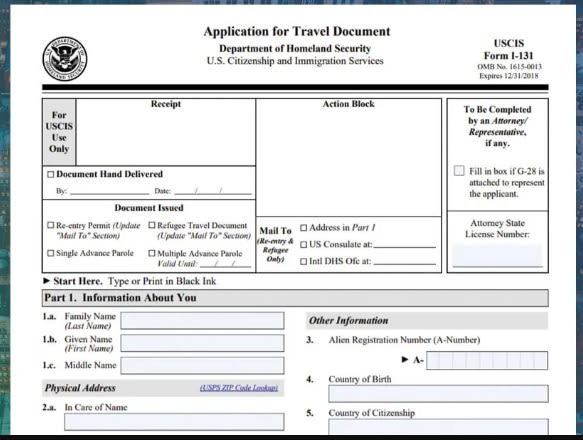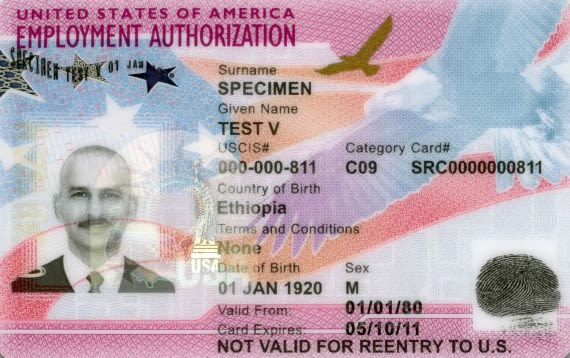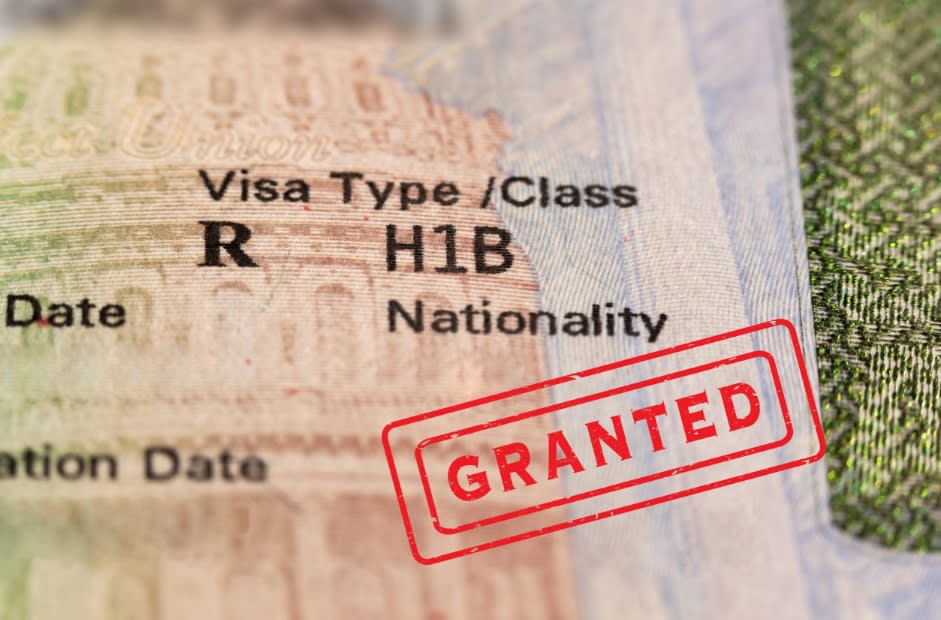If you are to ask when was the last immigration reform, 2023 was the year of significant changes and updates introducing reforms that could impact individuals considering Puerto Rico as a destination. These changes at the federal level apply to all U.S. territories, including Puerto Rico. Here, we present a comprehensive immigration reform enumerating those changes that affected immigrants and interested foreign investors for luxury real estate in prime locations in Puerto Rico.
Key Takeaways
- 2023 reforms broaden U.S. parole programs, impacting Puerto Rican residency opportunities.
- New DACA applications are halted, potentially affecting Puerto Rico's immigrant demographics.
- TPS enhancements include travel and work benefits, influencing Puerto Rico's economy.
- H1B visa renewals are streamlined within the U.S., benefiting Puerto Rico's workforce stability.
1. Expansion of Parole Programs
A principal alteration in these reforms is the broadening of parole programs. Originally initiated with the Uniting for Ukraine program, this policy now also embraces citizens from Cuba, Haiti, Nicaragua, and Venezuela. These expanded measures permit individuals from these countries to reside in the U.S. for up to two years, raising questions like 'Can a TPS holder travel to Puerto Rico?' due to its unique status as a U.S. territory. Eligibility for this residency, however, is contingent upon several prerequisites: the applicants must successfully undergo a comprehensive background check and secure a sponsor based in the U.S.
This expansion signifies a considerable transformation in the approach toward handling immigration from these nations, reflecting a humanitarian perspective while addressing the need for legal and procedural compliance. Implementing such programs provides a temporary haven for those in dire situations and facilitates their integration into the U.S. workforce, thereby contributing to economic diversity. This reformative step is especially pertinent to Puerto Rico, where these changes will likely influence the local economy and demographic composition.
Potential Impacts on Luxury Real Estate in Puerto Rico
- Increase in Demand: As parolees from these programs settle in the U.S., some may choose Puerto Rico due to its cultural links, especially those from Spanish-speaking countries like Cuba, Nicaragua, and Venezuela. This could lead to increased demand for housing, including luxury real estate, as some individuals may arrive with significant resources or quickly accumulate wealth through entrepreneurship or other means.
- Investment Opportunities: The presence of new wealthy residents could spur development in luxury real estate sectors, with developers seeking to cater to this new clientele. This could lead to a boost in construction jobs and related industries.
- Price Changes: An increase in demand could potentially drive up property prices in certain areas, particularly in high-end markets where supply might be more limited.
Legislative and Policy Considerations
- Future Amendments: These programs are subject to change based on the U.S. government's political climate and policy priorities. For instance, these parole programs' extensions, expansions, or restrictions could directly affect the influx of parolees into Puerto Rico and, by extension, the real estate market.
- Regulatory Adjustments: The local government in Puerto Rico might consider regulatory adjustments to manage the growth and ensure that it benefits the local economy without leading to disproportionate inflation in real estate prices or displacing local residents.
2. Ruling Against New Applications for the DACA Program
Image Source: usa-immigrations.com
The Deferred Action for Childhood Arrivals (DACA) program has been a cornerstone of U.S. immigration policy since its inception in 2012 under the Obama administration, leading many to ask questions like 'Can DACA recipients travel to Puerto Rico?' as part of their considerations. It provided certain undocumented immigrants who arrived in the U.S. as children with temporary relief from deportation and the ability to work legally in the country. However, a significant recent development is the Texas federal court's decision to halt new applications to the DACA program while allowing renewals and I-131 Advance Parole applications for current recipients to continue.
This decision, which effectively pauses the expansion of DACA, has stirred considerable legal and political debate, with expectations of an appeal to higher courts.
Impact on Puerto Rico
|
Impact on New Entrants |
Impact on Existing DACA Recipients |
|
Limited Influx of New Immigrants |
Stability in Status |
|
The recent judicial ruling restricts new DACA applications, which may decrease the number of young immigrants entering Puerto Rico. These individuals might have considered settling and investing in property, including luxury real estate, thus potentially limiting a new source of economic input. |
Existing DACA recipients in Puerto Rico can still renew their status and apply for I-131 Advance Parole, allowing them to maintain their legal presence and economic activities in the region. This provides a measure of stability for these individuals and the local economy. |
|
Potential Decrease in Property Investment |
Continued Economic Contributions |
|
With fewer new DACA recipients, there could be a noticeable decrease in the demand for various types of real estate, including luxury properties, as fewer of these young immigrants settle in the area. |
Those who have already established their lives under the protections of DACA and possess work authorization are likely to continue contributing to the real estate market, especially if they pursue property ownership as a form of stability. |
|
Reduced Cultural and Demographic Impact |
Investment and Business Engagement |
|
A reduction in new DACA entrants could mean less cultural diversity and slower demographic changes in urban areas where new immigrants might typically settle. |
DACA recipients involved in local industries and businesses may drive commercial and luxury real estate demand, supporting development and enhancing the economic landscape. |
|
Social and Cultural Integration |
|
|
Long-standing DACA recipients often display high levels of cultural and social integration. Their ongoing presence in Puerto Rican communities contributes to social cohesion and can influence community planning positively. |
Can Someone with DACA Travel to Puerto Rico? Clarifying the Rules
While Puerto Rico is a U.S. territory and technically considered domestic travel from the mainland, many still wonder: Can someone with DACA travel to Puerto Rico without legal complications? The answer is yes, but with important conditions.
Key Points DACA Recipients Should Know:
1. Puerto Rico Domestic Travel: You don't need a passport or visa, but you do need valid TSA-acceptable identification.
2. Carry the Right ID:
- Valid government-issued photo ID (e.g., driver’s license or state ID)
- Employment Authorization Document (EAD)
- Advance Parole (if previously granted—only applies to international travel)
3. Border Patrol (CBP) Presence: Be aware that CBP officers may conduct checks at airports or ferry ports. While this is rare, secondary screening can happen.
4. Advance Parole Not Required for Puerto Rico—unless there are other legal complications like prior removal orders or immigration violations.
Travel Preparedness Matrix (for DACA Recipients)
| Situation | Required Documents | Travel Risk | Suggested Action |
|---|---|---|---|
| Valid DACA + EAD | EAD + state ID | Low | Safe to travel; carry backup paperwork |
| DACA Renewal Pending | Expired EAD + Receipt Notice (Form I-797) | Medium | Consult immigration attorney |
| Prior Immigration Violation | EAD + legal documentation | High | Seek legal advice before traveling |
3. Temporary Protected Status (TPS)
Image Source: citizenpath.com
Temporary Protected Status (TPS) is a designation the U.S. government gives to eligible nationals of certain countries undergoing severe environmental disasters, ongoing armed conflict, or extraordinary and temporary conditions that prevent safe return. TPS recipients can live and work in the U.S. for designated periods as their status is subject to periodic review and renewal.
Specific Advancements for TPS Holders
- Issuance of Advance Parole Documents: One of the significant recent advancements for TPS holders is facilitating the issuance of Advance Parole travel documents. Advance Parole allows TPS recipients to travel outside the United States and return legally, which was a process fraught with uncertainty and risk before this policy adjustment.
- Extended Eligibility Periods: The U.S. government has also periodically extended the eligibility periods for TPS for various countries based on ongoing conditions, ensuring longer periods of stability for recipients.
- Work Authorization: Continuation and sometimes extension of work authorization permits TPS holders to remain employed legally in the U.S., supporting themselves and their families.
- Individuals: Temporary Protected Status (TPS) can generally travel to Puerto Rico without special travel documents, as it is a U.S. territory and is considered domestic travel. A valid government-issued photo ID, such as a driver's license, is typically sufficient for such travel.
These advancements have generally started to be implemented following specific announcements and decisions by the Department of Homeland Security (DHS), often in response to ongoing conditions in the home countries of TPS recipients or as part of broader immigration policy changes.
Impact on Luxury Real Estate in Puerto Rico
- Increased Purchasing Power: With the ability to work legally and the security of extended stays in the U.S., TPS holders may accumulate savings and potentially invest in property, including luxury real estate. This is particularly relevant in Puerto Rico, where real estate might be considered a stable investment amid economic fluctuations.
- Enhanced Mobility and Security: The provision of Advance Parole enhances mobility for TPS holders, making it feasible for them to travel for business or personal reasons without fearing they cannot return to the U.S. This security can encourage investment in more permanent properties, such as luxury homes, as it reduces the risk associated with leaving the U.S.
- Long-Term Residency Considerations: As TPS holders feel more secure and establish deeper roots in their communities, their interest in higher-value real estate might increase. Puerto Rico could appeal to many TPS holders due to cultural and linguistic ties, especially for Spanish-speaking recipients from Central and South America.
Travel Considerations for TPS Holders
Understanding travel regulations is essential for TPS holders planning to visit Puerto Rico. Since Puerto Rico is a U.S. territory, travel to and from the mainland U.S. is generally considered domestic travel. However, certain factors should be taken into account to ensure a smooth journey.
1. Domestic Travel Within U.S. Territories
- Puerto Rico as a U.S. Territory: TPS holders can travel freely between Puerto Rico and the mainland U.S. without requiring a visa or passport.
- Accepted Identification: A valid government-issued ID, such as a driver's license or state ID, is usually sufficient for travel.
- Recommended Documents: Carrying additional proof of TPS status, such as a TPS approval notice or Employment Authorization Document (EAD), may help address any inquiries at transportation checkpoints.
2. Traveling with a Pending TPS Extension
- Precautionary Measures: If a TPS extension is under review and the previous status has expired, travelers should carry documentation showing proof of the pending application.
- Legal Considerations: It is advisable to consult an immigration attorney before traveling, especially if you have concerns about documentation or status expiration.
- Risk of Secondary Screening: While domestic travel is permitted, some TPS holders report additional questioning at security checkpoints. Having supporting documents may help prevent delays.
Travel Preparedness Matrix
| Travel Scenario | Required Documents | Risk Level | Recommended Actions |
|---|---|---|---|
| TPS approved, valid EAD | Government-issued ID | Low | Carry TPS approval notice for added security |
| TPS expired, extension pending | ID + Proof of Pending Status | Medium | Consult an attorney before travel, carry all USCIS notices |
| Uncertain about status | ID + Legal Counsel Consultation | High | Seek legal guidance before making travel plans |
TPS holders frequently ask, "Can a TPS holder travel to Puerto Rico?" The answer is generally yes, but preparedness is key. Immigration policies may change, so it is recommended that TPS holders stay updated with USCIS guidelines and seek legal advice when necessary.
4. Simpler Process for H1B Visa Holders
Image Source: onlinevisas.com
The H1B visa is a non-immigrant visa used by the United States to employ foreign workers in occupations that require specialized knowledge and a bachelor's degree or higher in the specific specialty or its equivalent. H1B visa holders are often used in fields such as IT, engineering, mathematics, and science. The visa initially allows for a stay of up to three years, which can be extended to six years, with further extensions possible under certain conditions.
A pilot program was initiated to allow for the domestic renewal of H1B visas, simplifying the process significantly. This change means that H1B visa holders no longer need to leave the U.S. to renew their visas, a practice that previously involved considerable logistical challenges and uncertainties. Key aspects of the simplified renewal process include:
- Domestic Processing: Applicants can submit their renewal applications and receive new visas without traveling abroad.
- Streamlined Documentation: The need for extensive documentation may be reduced, speeding up the renewal process.
- Reduced Downtime: The ability to remain in the U.S. while processing occurs avoids disruption in the applicant's professional and personal life.
This pilot program started relatively recently. While specific start dates and the duration of the pilot phase might vary, such initiatives generally aim to evaluate the feasibility and impact of the changes before full implementation.
5. Digital Visa Application
The introduction of a digital visa application process marks a significant advancement in immigration procedures, especially concerning those aspiring to become residents of Puerto Rico. Initiated to streamline and simplify the process, this digital approach was implemented to replace the conventional paper-based system, enhancing efficiency and reducing the administrative burden on applicants and immigration authorities.
Specific Requirements for the Digital Visa Application
Applicants must access the designated online platform to complete their application forms. This system typically requires the submission of:
- personal information
- supporting documents
- proof of financial stability
- Digital copies of identification documents (e.g., passports and birth certificates)
Additionally, applicants may need to provide details regarding their:
- travel plans
- evidence of ties to their home country (to prevent overstays)
Conclusion
It's important to note that Puerto Rico follows the same immigration laws and procedures as the mainland United States, given its status as a U.S. territory. The Puerto Rico Department of State aids foreigners in understanding these processes and liaises with federal authorities on immigration matters. These reforms and updates reflect broader efforts to modernize and address specific issues within the U.S. immigration system, with potential implications for individuals looking to move to or reside in Puerto Rico as part of their immigration journey.
Discover the vibrant possibilities of luxury living with us at Christie's International Real Estate Puerto Rico. In light of the recent U.S. immigration reforms, we are at the forefront, offering bespoke services for those seeking to buy, sell, or lease premium properties in this paradisiacal destination. Whether you're influenced by the expanded parole programs, holding a status under DACA or TPS, or an H1B visa holder looking for stability, our expert team is here to guide you through the flourishing real estate landscape.
Contact us today to explore a curated selection of exquisite homes that promise an exclusive lifestyle and a sound investment in Puerto Rico's promising future.
FAQs
How do you become a resident of Puerto Rico?
To become a resident in Puerto Rico, one must follow U.S. immigration protocols, including applying for a visa or taking advantage of programs like parole or TPS if eligible; the process now benefits from a digital application system, making it more streamlined.
What changes did the U.S. make to Puerto Rico?
In 2023, the U.S. introduced reforms in legal immigration law that affected Puerto Rico, including expanding parole programs, suspending new DACA applications, improving TPS, and simplifying the H1B visa renewal process. These reforms have implications for Puerto Rico's demographic and economic landscape.
Do you have to go through immigration coming from Puerto Rico?
No, there is no immigration process when traveling between Puerto Rico and the U.S. mainland, as it is a U.S. territory, and its residents are U.S. citizens; however, identification is required for air travel due to standard airport security measures.










